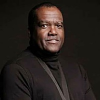Home » Jazz Articles » Liner Notes » Ravita Jazz: Oriana
Ravita Jazz: Oriana
That album title, explained the leader, has multiple meanings; the most obvious being that it's someone's name. But Ravita goes deeper than surface interpretations, as do his compositions on this intriguing sophomore outing. To his way of thinking, it's not a question of who is Oriana but rather what is Oriana. "The short answer," he says, "and probably most approachable, is it stands for a woman. But it also means golden dawning." He liked that concept since some of his music was written in or inspired by the look of the city in the wee hours of the morning. He added, "The songs in order tell an ongoing story...like a person's journey home through the city. And it's about what they see along the way. It's the traffic backup they're caught in ("Sepia"). It's the person they see in the window looking anxious and drinking caffeine ("Black Coffee"). It's bad news they experienced during the day ("Boo's Blues"). It's what they see and feel while they're doing all of this—people moving at breakneck speed, some patient, others impatient or even angry when they can't get what they want...or the actual disassociation from all that. Like, they're walking through a rainstorm not even noticing that they're wet." All of these aspects are addressed on Oriana.
The kinetic opener, "Sepia," is funk-based number with a hard backbeat that has Ravita grooving on electric 6-string bass. It's a frantic, choppy showcase reflecting the pace of the city that could stand as the composer's ode to being stuck in Baltimore traffic at rush hour. The release from that initial tension comes with the more hushed tones and nuanced delivery of "Black Coffee," featuring vocalist Deidre Jennings. Opening this moody standard as an intimate duo with Ravita's upright bass providing the walking pulse, Deidre's laid-back interpretation of this bluesy lament is steeped in the tradition of all the great singers who have ever tackled this 1948 classic, from Sarah Vaughan and Julie London to Peggy Lee, Chris Connor and Ella Fitzgerald, right up to Diane Schuur. Mark Leppo offers a hovering presence on vibes here with voicings that are rich yet subtle, more evocative than virtuosic.
Ravita's funky "Boo's Blues," buoyed by the composer's electric bass lines, features Russell in some hard-edged tenor blowing, a la Stanley Turrentine. Then on Small's buoyant jazz waltz December 2021, Russell switches to soprano to deliver some lilting, lyrical lines. Vega's interactive, polyrhythm touch here enlivens the track while his melodic flurry on the kit at the tag takes the proceedings up a notch.
Their stark, drum-less interpretation of "Caravan" has vocalist Jennings and pianist Small exploring the Middle Eastern implications of this classic bit of Ellingtonia. Ravita's "Peace and Love," written 22 years ago, is an alluring bossa nova flavored number that features some bold, Houston Person-like tenor work from Russell as well as potent solo contributions from Small on piano and the leader on upright bass. Said the composer of this sensuous number, "It's just about the concept of peace and love. In the words of John Lennon, if people tried it, they may become addicted to it."
Russell's Afro-Cuban flavored "Sisters" carries a touch of Ahmad Jamal's hypnotic version of "Poinciana" from 1958's At the Pershing: But Not for Me. Ravita noted, "We were definitely going for more of that feel of the openness of 'Poinciana.' And yet, there's a sense of imperative and forward motion to it." Russell's powerhouse tenor solo here, in which he double-times at will while also digging deep, carries a tender but proud vibe.
Small's minor key samba, "Stormshine," has Russell switching to soprano sax once again. Then on Ravita's unhurried "City Lights," Russell's smoky tenor tones lay against the shimmering presence of Mark Leppo's vibraphone comping. "It's a very contemplative piece," said the composer. "You can almost picture somebody in Brooklyn looking out the back window of their apartment from the seventh or eighth floor, and they're seeing the city in the distance. It's that kind of thing." The collection closes with Russell's gospel flavored "Heaven," which features some of his most soulful expression of the session. "Yeah, he really takes us to church on that one," said Ravita.
Together with his like-minded colleagues, bassist-composer-bandleader Ravita takes listeners on a kinetic, contemplative and ultimately expansive ride on Oriana.
Liner Notes copyright © 2024 Bill Milkowski.
Oriana can be purchased here.
Contact Bill Milkowski at All About Jazz.
Bill Milkowski is the author of "Jaco: The Extraordinary Life and Times of Jaco Pastorius"
Track Listing
Songs; Sepia; Black Coffee; Boo's Blues; December 2021; Caravan; Peace and Love; Sisters; Stormshine; City Lights; Heaven.
Personnel
Phil Ravita
bassMark Leppo
drumsBenny Russell
saxophoneGreg Small
keyboardsNuc Vega
drumsDeirdre Jennings-Holton
vocalsAdditional Instrumentation
Mark Leppo/vibraphone
Album information
Title: Oriana | Year Released: 2023 | Record Label: Self Produced
< Previous
Clara Lai Trio, Sam Weinberg and Inte...
Next >
Brandee Younger at Dazzle
Comments
Tags
Concerts
For the Love of Jazz
 All About Jazz has been a pillar of jazz since 1995, championing it as an art form and, more importantly, supporting the musicians who create it. Our enduring commitment has made "AAJ" one of the most culturally important websites of its kind, read by hundreds of thousands of fans, musicians and industry figures every month.
All About Jazz has been a pillar of jazz since 1995, championing it as an art form and, more importantly, supporting the musicians who create it. Our enduring commitment has made "AAJ" one of the most culturally important websites of its kind, read by hundreds of thousands of fans, musicians and industry figures every month.





















